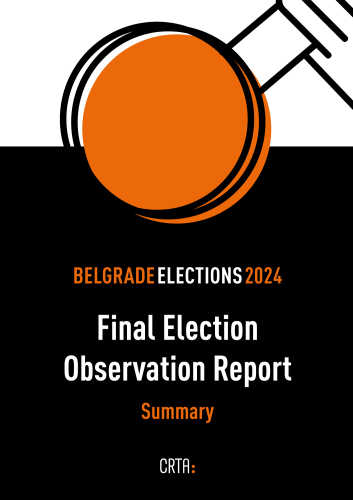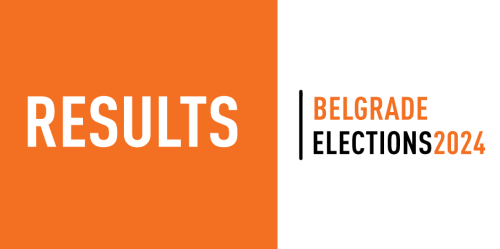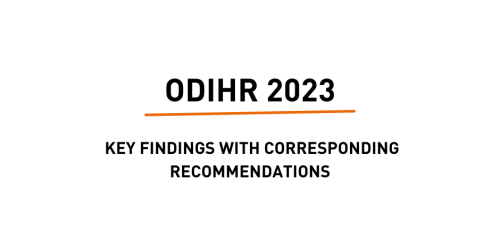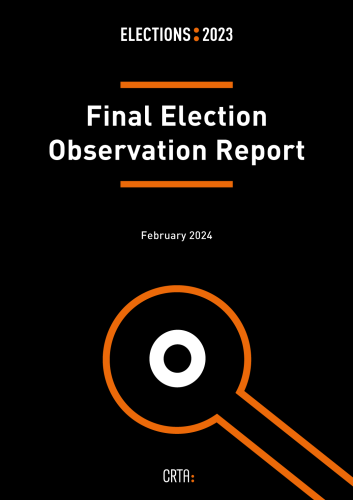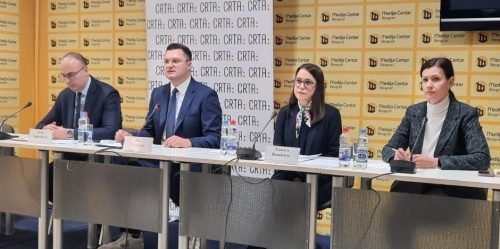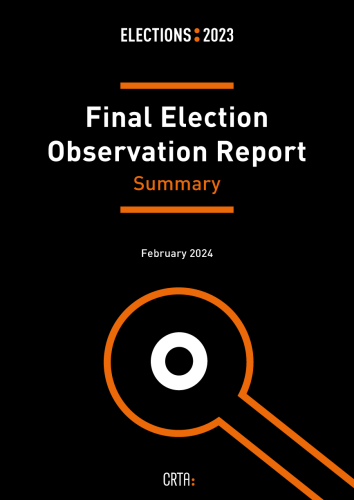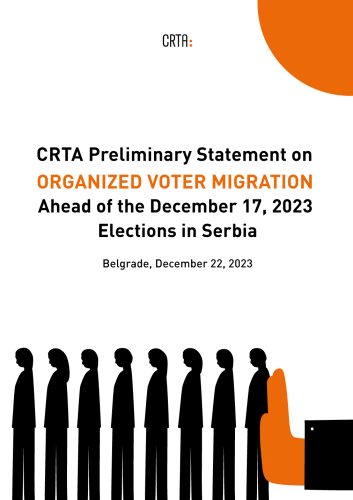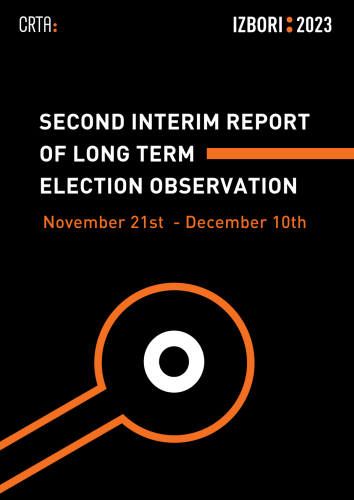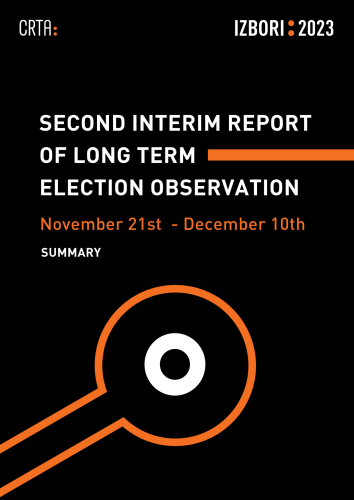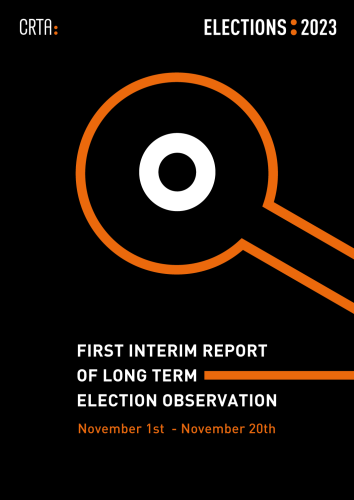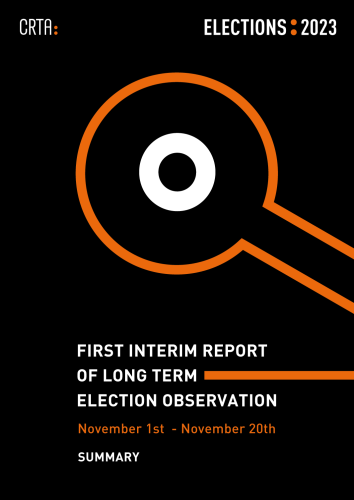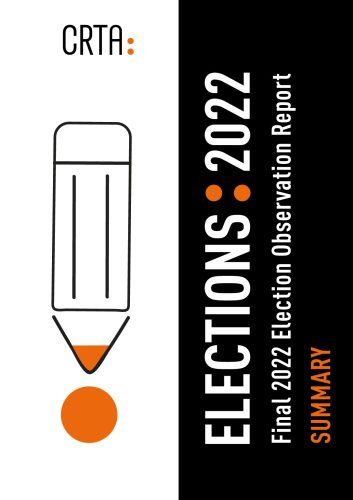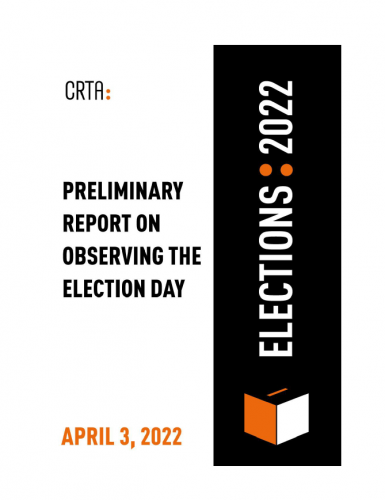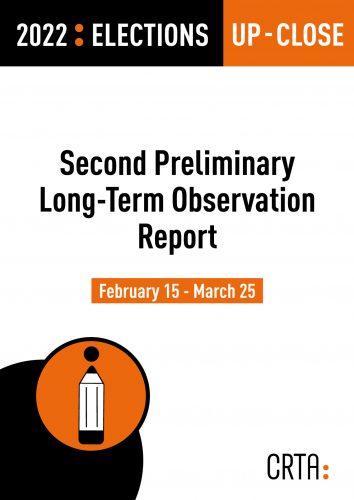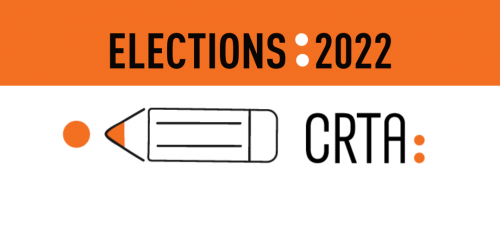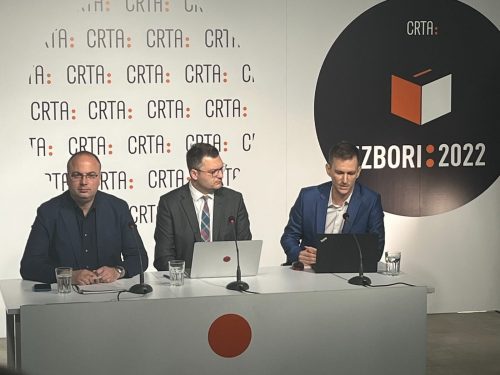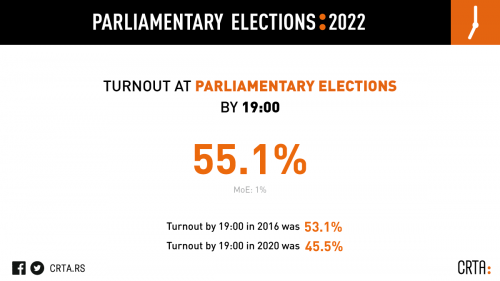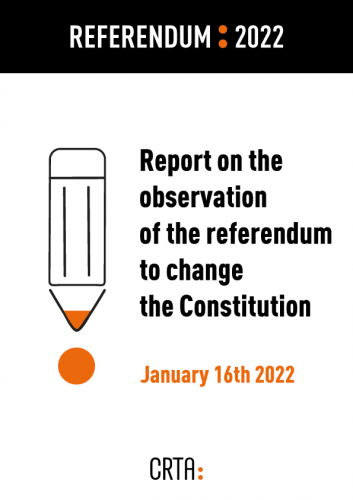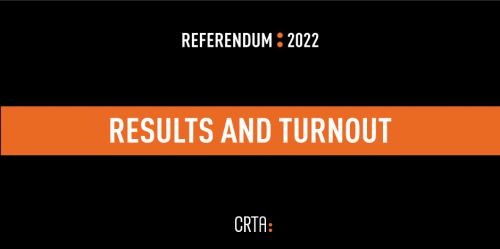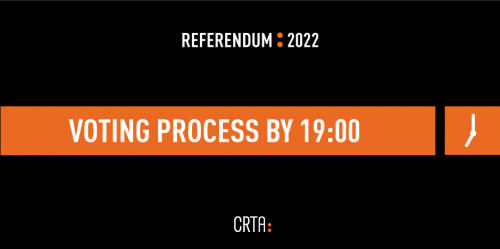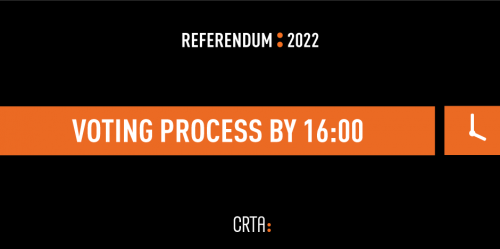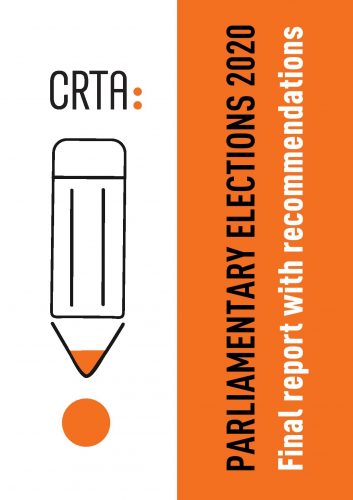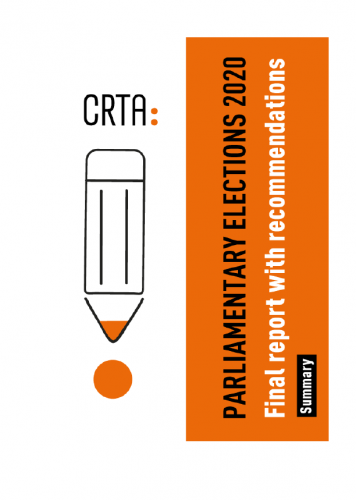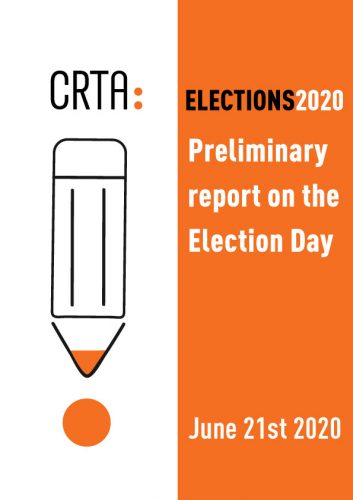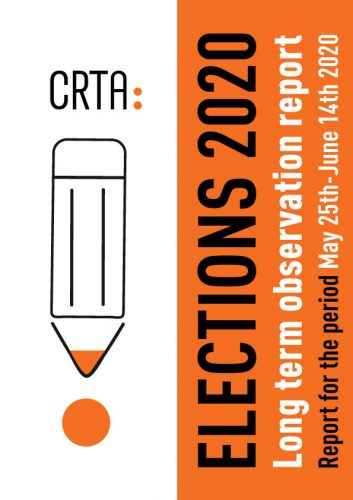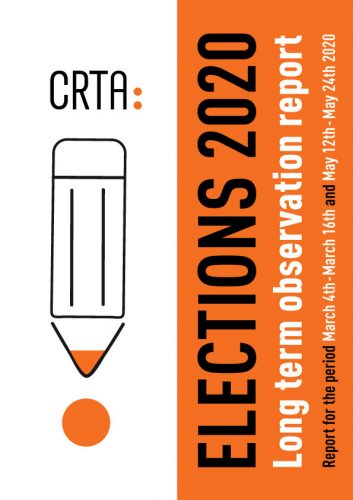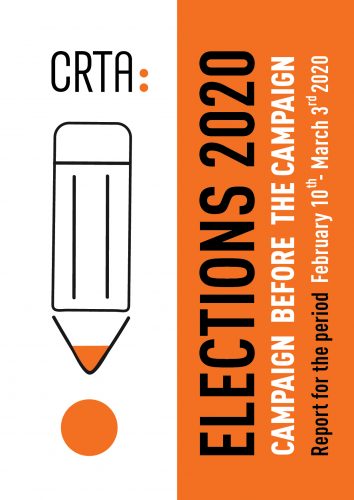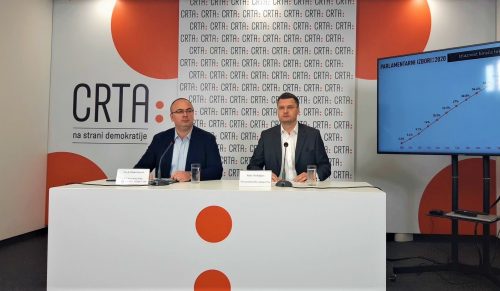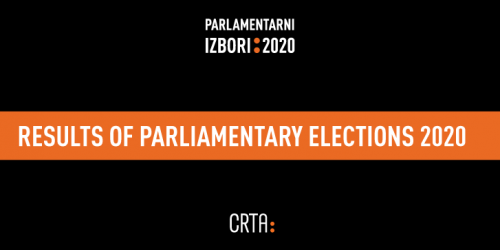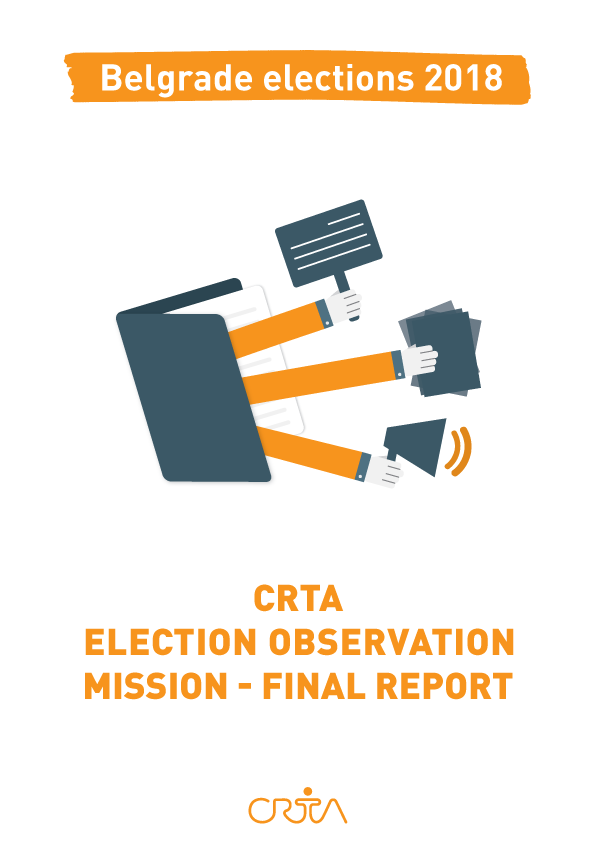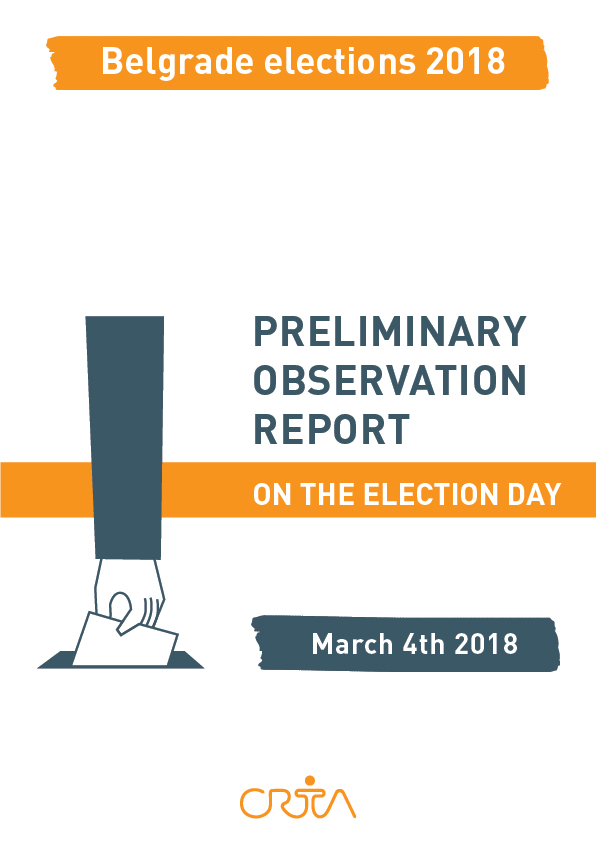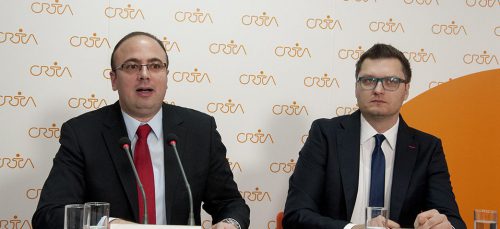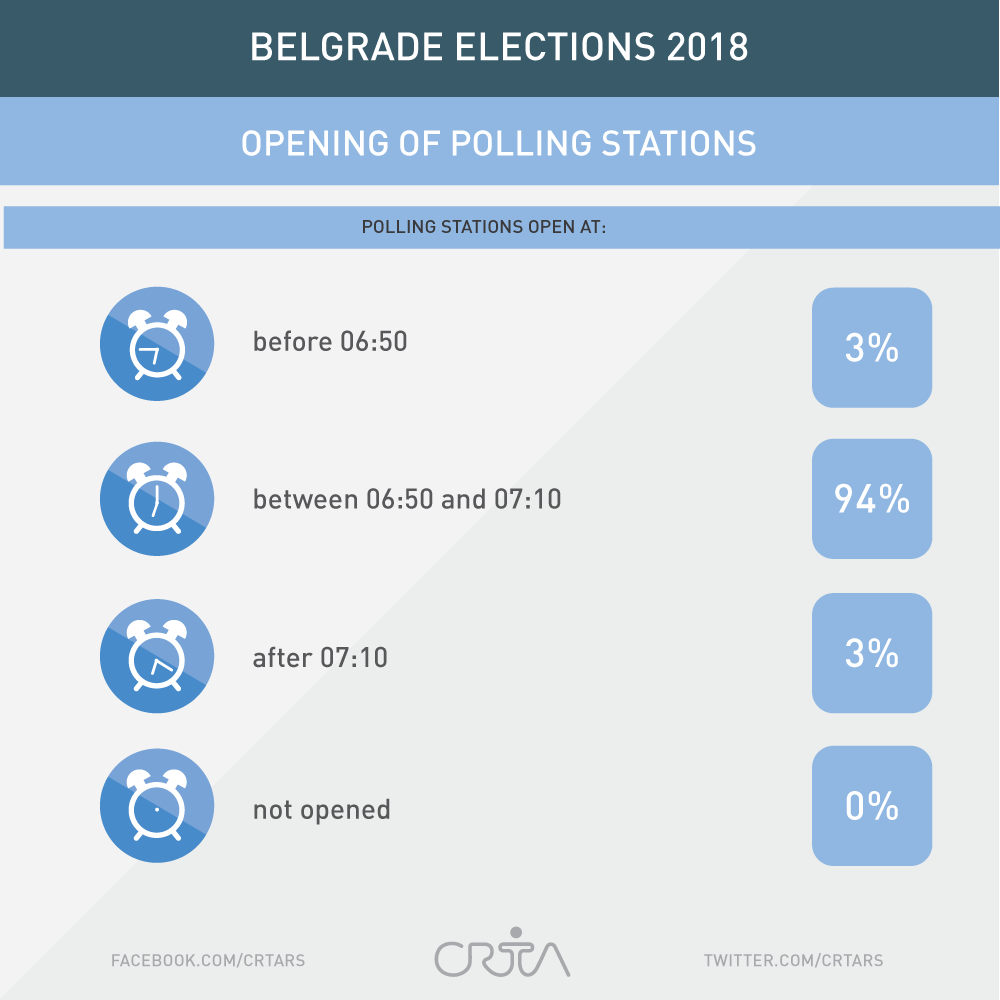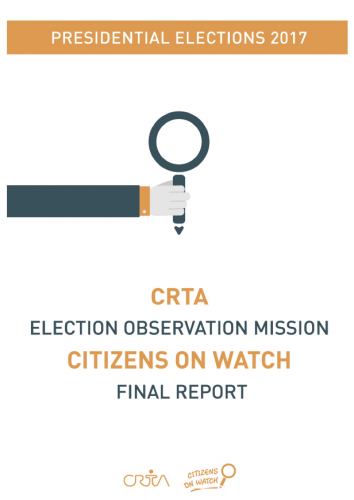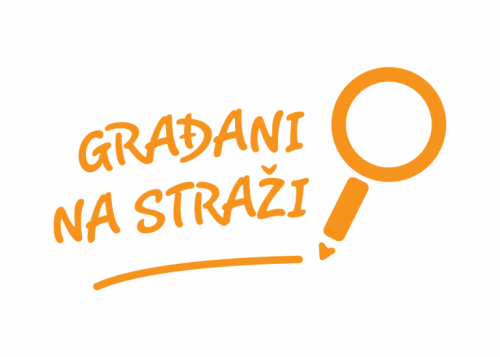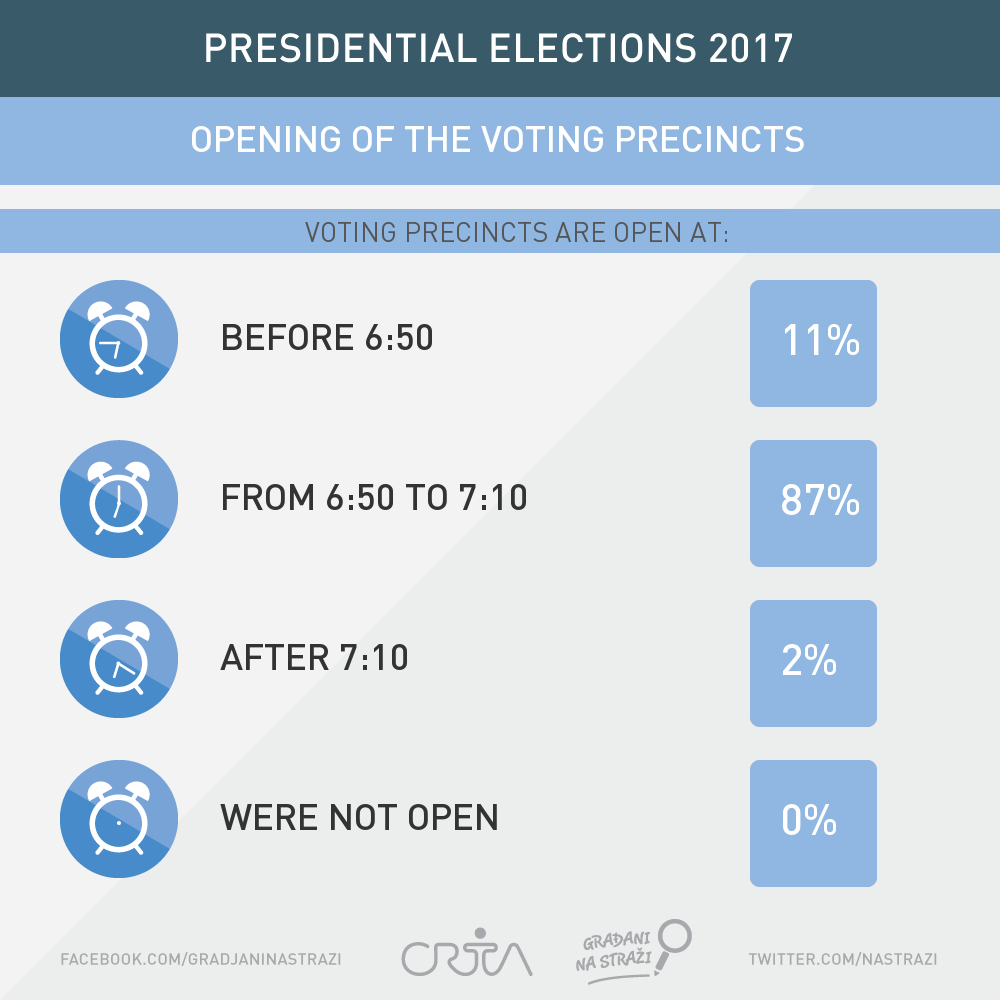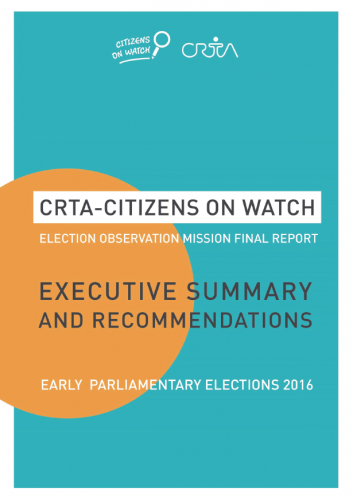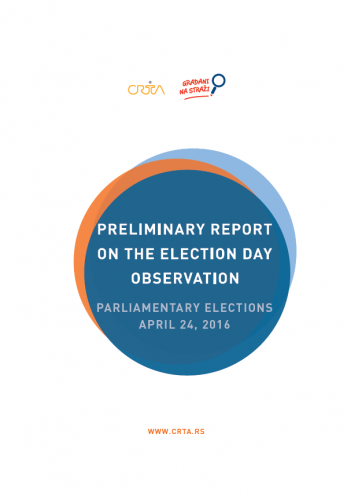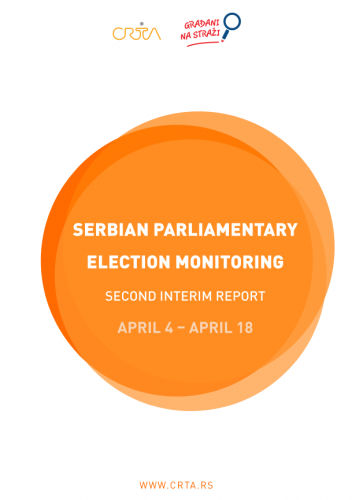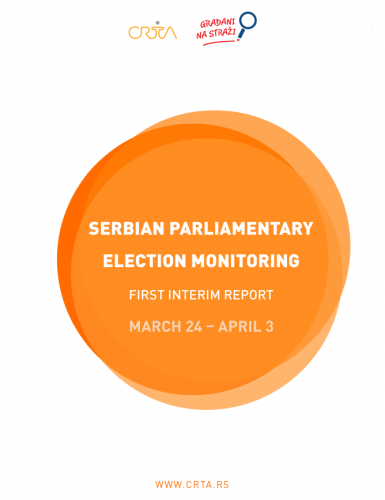Election Cycles
2024
ELECTIONS
The Elections for the Belgrade City Assembly were called for June 2, 2024
2023
ELECTIONS
Elections on multiple levels were called for December 17, 2023
2022
ELECTIONS
Elections on multiple levels were called for April 3, 2022
2022
REFERENDUM
The Referendum to Change the Constitution in the area of judiciary was held on January 16, 2022
2020
PARLIAMENTARY ELECTIONS
The Elections for Members of Parliament were held on June 21, 2020
2018
BELGRADE ELECTIONS
The Elections for the Belgrade City Assembly were held on March 4, 2018
2017
PRESIDENTAL ELECTIONS
The Elections for the President of the Republic were held on April 2, 2017, across Serbia
2016
PARLIAMENTARY ELECTIONS
The Elections for Members of Parliament were held on April 24, 2016, along with provincial and local elections
2024
ELECTIONS
The Elections for the Belgrade City Assembly were called for June 2, 2024
Belgrade Elections 2024 – Final Election Observation Report – Summary
The elections for the members of the Assembly of the City of Belgrade, held on June 2, 2024, were marked by a decline in electoral integrity and quality, the rule of law, and the democratic capacity of society. Due to the boycott by a part of the opposition and a record low turnout, the lowest in the past 16 years, with 200,000 fewer voters compared to December 2023, the legitimacy of these elections remains questionable, although they’ve resulted in a majority that was more than sufficient for a new city Council. The results emerged from the electoral process that was…
Poor Election Day in Belgrade
The elections for the Assembly of the City of Belgrade were devastating regarding the integrity and quality of the elections, the rule of law and the democratic capacity of society. Around 200,000 fewer voters got out to vote compared to December, and despite a convincing majority that will form the Belgrade government, its legitimacy will be questioned as it resulted from an election process far below the standards for democratic elections. Since these elections were called, CRTA has emphasized the necessity not to view them in isolation but as a continuation of the Belgrade elections from last December, which were…
Sorry, we couldn't find any posts. Please try a different search.
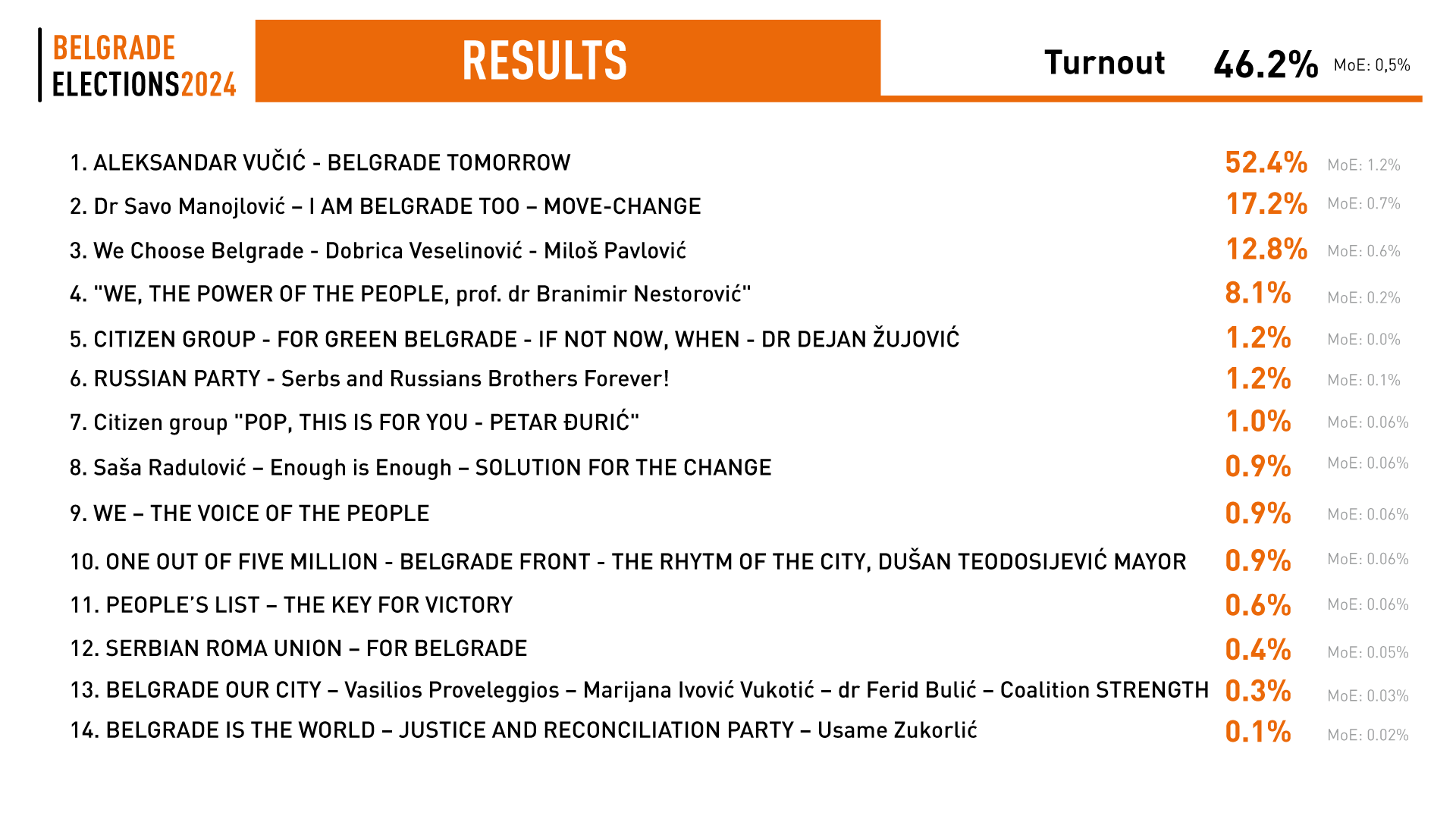
2023
ELECTIONS
Elections on multiple levels were called for December 17, 2023
ODIHR 2023 – Key findings with corresponding recommendations
BLURRED LINE BETWEEN THE STATE AND THE PARTY Finding: “dominated by the decisive involvement of the President, which, together with the ruling party’s systemic advantages, created unjust conditions” Finding: “pressure on public sector employees, misuse of public resources, and voter inducement schemes raised concerns about voters’ ability to make a choice free from undue pressure. These practices … tilted the playing field, and blurred the line between state and the party, at odds with international standards and paragraph 5.4 of the 1990 OSCE Copenhagen Doc.“ REC. Priority: The law should provide for a clear separation between the official functions…
Final Election Observation Report – 2023
The extraordinary parliamentary and Belgrade elections were not free and fair. The election outcomes emerged as a result of the unlawful advantages gained by the ruling party, with the complicity of several state institutions and authorities – primarily the Ministry of Public Administration and Local Self-Government, and the Ministry of Internal Affairs, as well as bodies of certain local self-governments. From the moment when the elections were officially called, institutions increasingly disregarded legal constraints, leading to local election results in Belgrade not reflecting the freely expressed will of the citizens, and significantly compromising the legitimacy of parliamentary election outcomes. Read…
CRTA’s Final Election Observation Report: Defeat of the state and the rule of law
CRTA assessed that the extraordinary parliamentary and Belgrade elections, held on December 17, 2023, were not free and fair, as stated in the Final report of the CRTA’s Election Observation Mission, presented today at the media conference in Belgrade. The election outcomes emerged as a result of the unlawful advantages gained by the ruling party, with the complicity of several state institutions and authorities – primarily the Ministry of Public Administration and Local Self-Government, and the Ministry of Internal Affairs, as well as bodies of certain local self-governments. However, the main responsibility for cementing the detrimental principle of impunity lies…
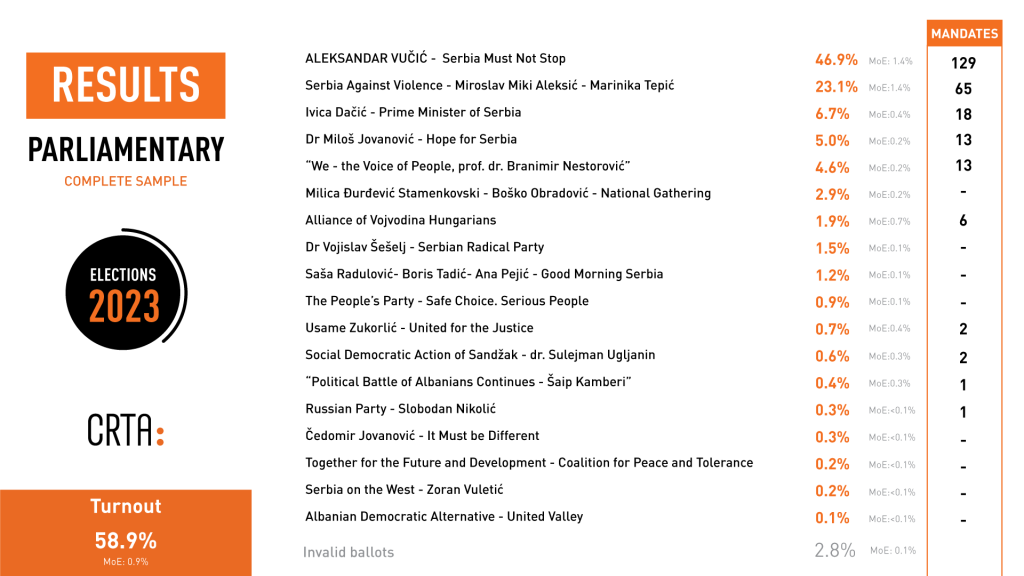
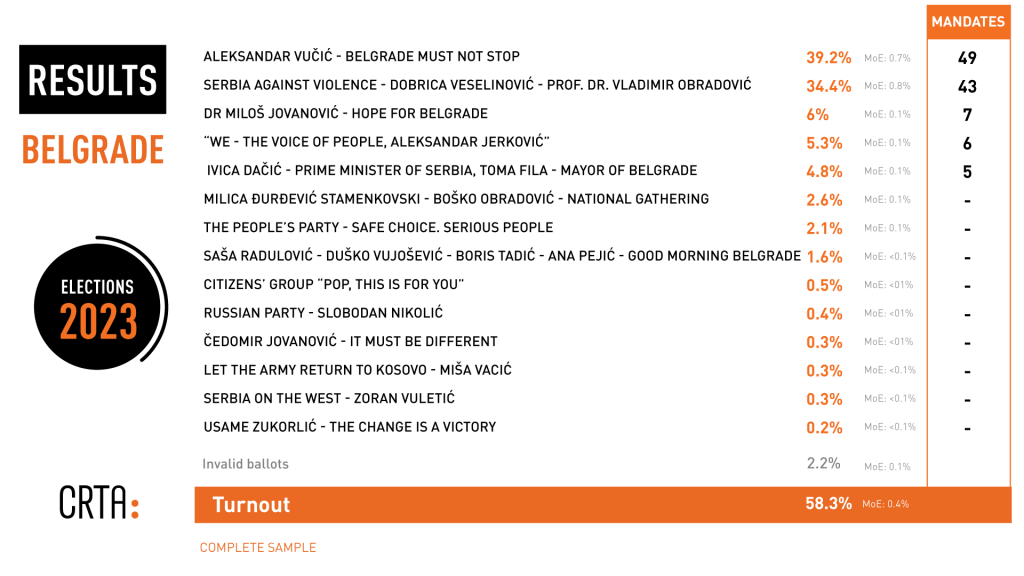
Final Election Observation Report – 2023
The extraordinary parliamentary and Belgrade elections were not free and fair. The election outcomes emerged as a result of the unlawful advantages gained by the ruling party, with the complicity of several state institutions and authorities – primarily the Ministry of Public Administration and Local Self-Government, and the Ministry of Internal Affairs, as well as bodies of certain local self-governments. From the moment when the elections were officially called, institutions increasingly disregarded legal constraints, leading to local election results in Belgrade not reflecting the freely expressed will of the citizens, and significantly compromising the legitimacy of parliamentary election outcomes. Read the full report below.
Final Election Observation Report – Summary
The extraordinary parliamentary and Belgrade elections were not free and fair. The election outcomes emerged as a result of the unlawful advantages gained by the ruling party, with the complicity of several state institutions and authorities – primarily the Ministry of Public Administration and Local Self-Government, and the Ministry of Internal Affairs, as well as bodies of certain local self-governments. From the moment when the elections were officially called, institutions increasingly disregarded legal constraints, leading to local election results in Belgrade not reflecting the freely expressed will of the citizens, and significantly compromising the legitimacy of parliamentary election outcomes. Responsible institutions are ignoring a mass of evidence and indications of not only gross violations of democratic principles but also a series of criminal acts in the election process. This further reinforced the principles of impunity and legal uncertainty, for which prosecutorial bodies bear the greatest responsibility. The spectrum of severe endangerments of voters’ and candidates’ rights includes unscrupulous pressures on citizens, manipulations of the voters registry, forgeries of support signatures for nominated lists, misuse of citizens’ personal data, and falsification of the election results publication date in the Official Gazette, committed to prevent the opposition from utilizing the legal deadline for submitting complaints to the Constitutional Court. Such law violations would not have been possible without the passivity and direct involvement of institutions, i.e. civil servants at various levels of hierarchy. Initiating criminal and disciplinary proceedings to establish responsibility and punish the initiators and perpetrators of the criminal acts destroying the electoral integrity is a prerequisite for any further discussion on the electoral process. From the observation mission’s standpoint, it is disturbing to note that chronic problems of elections in Serbia have been somewhat overshadowed by the onslaught and weight of evidence about illegal and illegitimate electoral engineering, including organized voter migrations. These include political clientelism and pressures on voters, media inequality, misuse of public resources and office – which were even more pronounced in comparison with previous elections. The findings of the CRTA Election Observation Mission show serious irregularities at 13 percent of polling stations in the parliamentary elections, while in the Belgrade elections, the share of such polling stations amounts to as much as 21 percent.
Preliminary Statement on Organized Voter Migration Ahead of the December 17, 2023 Elections in Serbia
Organized voter migration is a type of electoral engineering that includes coordinated behavior of voters that temporarily change their residence to another constituency to influence voting results. In Serbia, in the Elections 2023 it might have been used on a large scale to influence the outcomes of the local elections strategically called only in one part of cities and municipalities. Organized voter migration is neither legal nor legitimate. Applying for fictitious residences to use the voting right in another constituency violates the acting law regulating citizens’ residences in Serbia. It also undermines electoral equality and substantially infringes upon the guaranteed right to local self-government. CRTA Election Observation Mission has actively collected evidence and conducted analyses about the organized voter migration before, during, and after Election Day. Qualitative evidence was collected from citizens and informants before the elections, by CRTA’s observers in and around polling stations during Election Day, and by collecting statements by political actors confirming or even justifying the practice. Additional analysis was done using quantitative data collected from the voter register excerpt and the polling station-level election results. When manipulation of the voter register happens on a big scale, it cannot be kept secret. Information about anomalies in the voter register was collected from citizens before Election Day, which raised attention to possible issues. Parallel insider information about voter migration confirmed these suspicions. Several testimonies were collected, indicating possible activity from within the ruling party organization, from local municipal administration, and even manipulation from the central level. Crucial pieces of evidence were collected on Election Day by CRTA observers at the representative sample of polling stations in Belgrade. Photographic or video evidence was collected of large-scale organized migration of voters from within other regions in Serbia and from abroad. CRTA observers recorded several logistical centers from where the voters were sent to polling stations across Belgrade. Instances of organized voter transportation, supervised voting, or irregularities that point to potential voter identity manipulations were identified at 14% of all polling stations in Belgrade. An additional analysis was performed after Election Day, using quantitative data from the official voter register excerpts and the voting results. It showed a substantial scope of changes in the voter register on an annual level that should be further scrutinized. The analysis helped identify polling stations in Belgrade with a high probability of being a destination for organized migration of voters, and it associated such polling stations with an increased number of votes for the incumbent. Political actors themselves provided external validation for this analysis. Several senior politicians or government officials from Serbia and Bosnia and Herzegovina explicitly confirmed such practice exists or even justified it as legal or legitimate. It was neither. CRTA Election Observation Mission strongly believes organized voter migration may be a serious challenge to the quality of elections in Serbia and will be difficult to tackle. In the preliminary statement on Election Day, CRTA assessed that the results of the elections in Belgrade do not reflect the freely expressed will of voters living there. If this practice persists, with regular local elections scheduled in less than six months, there is little time to address these issues. This is why we close this preliminary statement with recommendations that might put an end to it. The full report can be found below.
Second Interim Report Of Long Term Election Observation
The campaign for the extraordinary parliamentary and Belgrade elections took place in an atmosphere of systematic abuse of institutions, public functions and the most influential media, which placed electoral actors in an unequal position. Mass cases of falsification of signatures for candidacy marked the process of the submission of electoral lists. Worrying allegations of pressure on citizens through the public sector, cases of misuse of personal data and the fear of part of the public that the voter list and voting rights are being manipulated call into question the integrity of the institutions of the Serbian state. Formal restrictions on participation in the elections were not recorded, but the campaign took place in a manner in which the border between the state and the party was erased and intolerance towards political opponents was encouraged. In the penultimate week of the campaign, CRTA sent an appeal to around 1,600 addresses of officials in all city and municipal administrations in Serbia, reminding them of their legal obligations and calling on them to do everything in their power to protect the implementation of the law and the integrity of institutions. The recommendations to the institutions and election actors, which the CRTA Election Observation Mission presented in its previous report, remained unanswered regarding the problems of pressure on voters, suspicions of manipulation of the voter list and voting rights, media inequality and unethical reporting on election candidates.
Second Interim Report Of Long Term Election Observation – Summary
The campaign for the extraordinary parliamentary and Belgrade elections took place in an atmosphere of systematic abuse of institutions, public functions and the most influential media, which placed electoral actors in an unequal position. Mass cases of falsification of signatures for candidacy marked the process of the submission of electoral lists. Worrying allegations of pressure on citizens through the public sector, cases of misuse of personal data and the fear of part of the public that the voter list and voting rights are being manipulated call into question the integrity of the institutions of the Serbian state. Formal restrictions on participation in the elections were not recorded, but the campaign took place in a manner in which the border between the state and the party was erased and intolerance towards political opponents was encouraged. In the penultimate week of the campaign, CRTA sent an appeal to around 1,600 addresses of officials in all city and municipal administrations in Serbia, reminding them of their legal obligations and calling on them to do everything in their power to protect the implementation of the law and the integrity of institutions. The recommendations to the institutions and election actors, which the CRTA Election Observation Mission presented in its previous report, remained unanswered regarding the problems of pressure on voters, suspicions of manipulation of the voter list and voting rights, media inequality and unethical reporting on election candidates.
First Interim Report Of Long Term Election Observation
The CRTA Election Observation Mission assesses that the course of the election campaign thus far has been marked by pronounced advantages which the ruling parties have gained through the abuse of institutions and manipulations of the electoral calendar. In less than two years, the second extraordinary parliamentary and Belgrade elections were announced. Extraordinary provincial elections were also announced, and without precedent and clear explanation, a decision was made to hold snap local elections in over a third of the municipalities, half a year before they were set to be scheduled. The relatively short inter-election period was not used to improve electoral conditions.
Elections 2023 – First Interim Report Of Long Term Election Observation
The CRTA Election Observation Mission assesses that the course of the election campaign thus far has been marked by pronounced advantages which the ruling parties have gained through the abuse of institutions and manipulations of the electoral calendar. In less than two years, the second extraordinary parliamentary and Belgrade elections were announced. Extraordinary provincial elections were also announced, and without precedent and clear explanation, a decision was made to hold snap local elections in over a third of the municipalities, half a year before they were set to be scheduled. The relatively short inter-election period was not used to improve electoral conditions.
2022
ELECTIONS
Elections on multiple levels were called for April 3, 2022
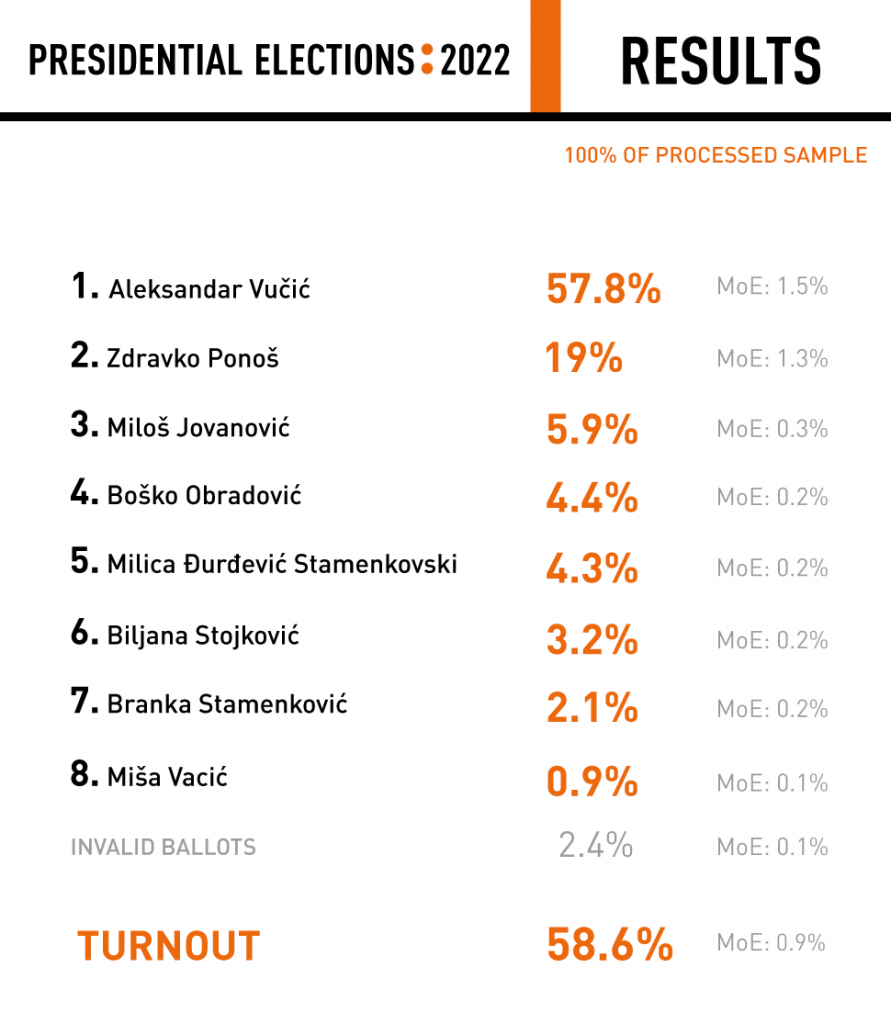
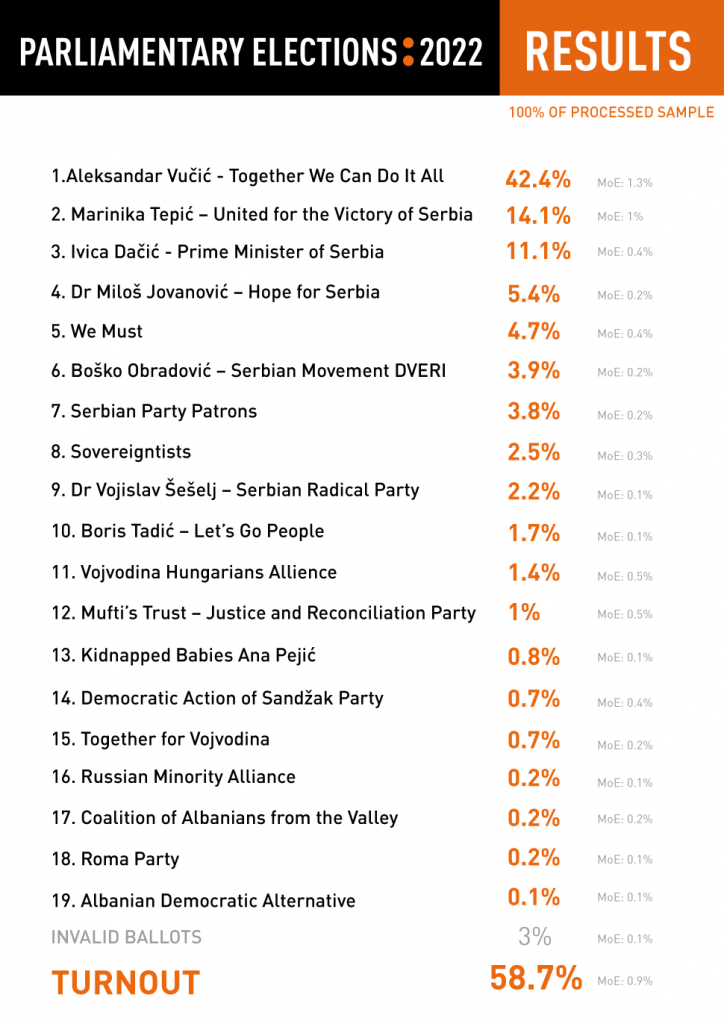
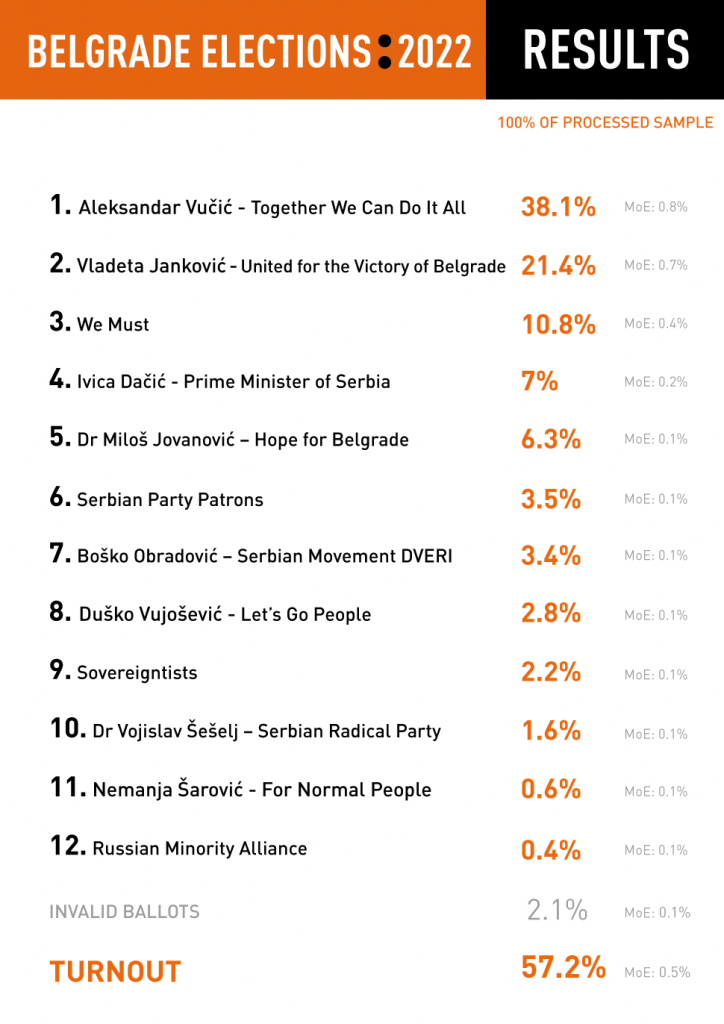
Elections 2022 – Final report
Taking into account the entire election process, from the moment of announcing the election to the announcement of the final results, the Monitoring Mission of the Line assesses that the integrity of the election was significantly threatened because the equality of the election participants was collapsed in favor of the parties in power, the voters were deprived of even and objective information about the election offer, and the freedom of choice was threatened for certain groups of the population. Comprehensive changes to election laws, which, contrary to international democratic standards, were implemented before the announcement of elections, along with the abandonment of the decades-long practice of organizing elections, burdened the election administration and contributed to legal uncertainty. The elections were marked by widespread clientelistic practices, pressures and intimidation, pronounced media inequality, and abuse of institutional advantages that blurred the line between the state and the ruling party. Attempts to protect the integrity of the election remained without a timely institutional response and without an epilogue.
Elections 2022 – Preliminary Report on Observing the Election Day
The election of members of the Parliament of the Republic of Serbia, the presidential election, and local elections in 13 local self-government units, including Belgrade, were held simultaneously on April 3, 2022. The parliamentary and presidential elections were organized with the Republic of Serbia as one constituency. The parliamentary and local elections were conducted using a proportional electoral system, and parliamentary mandates are distributed by the system of the highest quotient between candidate lists that have crossed the electoral threshold of 3 percent of all valid votes. The presidential elections were conducted using the majority electoral system, through direct voting for presidential candidates.
Second Preliminary Long-Term Observation Report; February 15th – March 25th
The preliminary report of the Observation Mission on the quality of the election campaign for the presidential, parliamentary, and Belgrade city elections, which will be held on April 3, 2022, shows that the institutions responsible for law enforcement and protection of voting rights have not sufficiently contributed to protecting the public interest or achieving higher standards for free and democratic elections. Those institutions that did react to violations of the law during the campaign, did not have an impact on changing the behaviour of those election actors who abused their institutional advantages in the election race. Measures to improve election conditions, stemming from two inter-party dialogues, have resulted in a more complex legislative and institutional framework for conducting elections. But, in practice, they have not contributed to addressing the burning issues with elections in Serbia: media inequality of election participants, misuse of public resources, clientelist practices, and pressure being put on voters.
Results of the Presidential, Parliamentary and Belgrade elections 2022
On the basis of processed data from 99 percent of polling stations, voter turnout in presidential elections elections is 58,6 percent (margin of error 1 percent). On the basis of processed data from 99 percent of polling stations, voter turnout in parliamentary elections elections is 58,7 percent (margin of error 1 percent). On the basis of processed data from 99 percent of polling stations, voter turnout in Belgrade elections is 57,2 percent (margin of error 0,5 percent).
Read MoreChaotic Election Day As Result of the Poor Electoral Process
Election day went in an atmosphere full of tensions that on several occasions escalated into physical violence, manifesting the unpreparedness of election administration and the lack of citizens’ trust in institutions. Extremely poor organization of the voting process and tensions on the election day were the expected outcome of the continuous degradation of the integrity of the electoral process in its entirety, which was marked by strengthening and sophistication of mechanisms of electoral corruption, and endangerment of citizens’ voting rights.
Read MoreVoter turnout by 19:00 slightly higher than in previous elections
A total of 55,1 percent of citizens voted in the presidential elections by 19:00 (margin of error 1 percent). In comparison, voter turnout by 19:00 in the 2016 parliamentary elections amounted to 53,1 percent, and 45,5 percent in 2020. On the territory of Belgrade, voter turnout by 19:00 in parliamentary elections is 52,2 (margin of error 0,6 percent), which is 4 percent points higher than in the 2018 Belgrade elections.
Read More2022
REFERENDUM
The Referendum to Change the Constitution in the area of judiciary was held on January 16, 2022
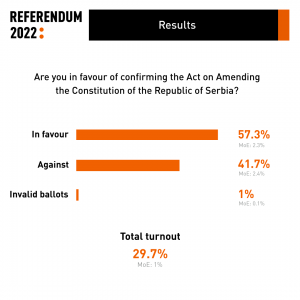
The Report on the Observation of the Referendum to Change the Constitution 2022
A referendum in which the citizens of Serbia voted to confirm the Act amending the part of the Constitution of the Republic of Serbia related to justice was called on November 30, 2021, and held on January 16, 2022, at 8,189 polling stations. 6,510,323 citizens of Serbia were registered to vote. The referendum was organized at short notice, with changes made to the law on its implementation just a few days before its announcement, which is not in line with international democratic standards. The campaign period for the referendum 1 was marked by growing socio-political tensions, and by the fact that the referendum was organized in the wake of the regular presidential, early parliamentary, and Belgrade city elections announced for April 3, 2022.
Turnout in the referendum 29,6 percent, majority of citizens voted “for” constitutional changes
On the basis of 98 percent of processed sample, a total of 57,4 percent of citizens who voted “for” the confirmation of the act on changing the Constitution of the Republic of Serbia, while a total of 41,6 percent of voters voted “against” constitutional changes, the CRTA’s observation mission reported. Margin of error with confidence interval of 95% was +/- 2,4 percent. Invalid ballots numbered a total of 1 percent of ballots.
Read MoreA total of 27,6 percent of citizens voted in referendum by 7pm
A total of 27,6 percent of voters registered in the voters registry voted in referendum on constitutional changes in the part related to the judiciary by 7 pm, the CRTA’s observation mission stated. Margin of error with confidence interval of 95% was +/- 1,3 percent.
Read MoreInadequate preparedness of bodies authorized to conduct the voting process
CRTA’s observation mission assesses the poor quality in the conduct of the voting process in the first part of the day, reflecting in inadequate preparation of polling stations (8%) and breaches of voting procedures outside of polling stations (6%). On significant number of polling stations – almost 30%, all members of polling boards were not present at the polls opening, representing the inadequate preparedness of bodies authorized to conduct the voting process.
Read More2020
PARLIAMENTARY ELECTIONS
The Elections for Members of Parliament were held on June 21, 2020
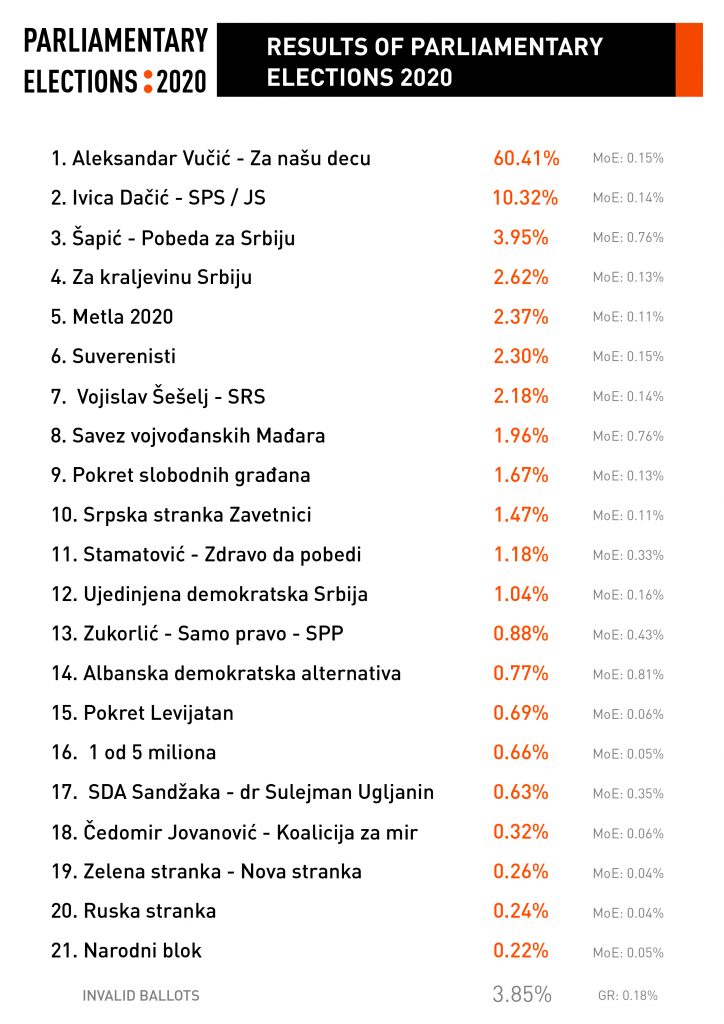
Parliamentary Elections 2020: Final report with Recommendations
Elections for MPs of the 12th convocation of the National Assembly of the Republic of Serbia were held on June 21st, 2020. In addition to the regular parliamentary elections, regular provincial elections were held on the same day, as well as elections for local assemblies in 154 cities and municipalities in Serbia. The CRTA observation mission, as a non-partisan and independent national observer, monitored the entire course of the parliamentary elections, pre-election period, the Election Day and post-election period, until the announcement of the final election results, while local and provincial elections were not observed.
Elections 2020: Summary and Recommendations – Final Report
Elections for MPs of the 12th convocation of the National Assembly of the Republic of Serbia were held on June 21st, 2020. In addition to the regular parliamentary elections, regular provincial elections were held on the same day, as well as elections for local assemblies in 154 cities and municipalities in Serbia. The CRTA observation mission, as a non-partisan and independent national observer, monitored the entire course of the parliamentary elections, pre-election period, the Election Day and post-election period, until the announcement of the final election results, while local and provincial elections were not observed.
Elections 2020: Preliminary report on the Election Day, June 21st 2020
The preliminary report on the Election Day of the CRTA observation mission refers primarily to the quality of the process on the Election Day and is based on information collected from more than 1,700 accredited and trained short-term observers, who were deployed on a random and representative sample of 500 polling stations1. Our observers monitored the Election Day from the preparation and opening of polling stations to their closure and the announcement of election results at the observed polling stations. In addition to observing the elections inside polling stations, some observers deployed in 150 mobile teams monitored events in front of and around polling stations, while specially trained teams of our observers
Elections 2020: Long term observation report for the period May 25th – June 14th
The second preliminary report of the CRTA observation mission refers to the period from May 25th to June 14th, before the proclamation of the election silence in the eve of the general and local elections scheduled for June 21st, 2020. During this period, different activities of the institutions in charge of conducting the elections was noted. The work of the Republic Election Commission underwent in accordance with the competencies and the existing legal framework, with increased educational and informative activity in comparison to previous years
Elections 2020: Long term observation report for the period March 4th – March 16th and May 12th – May 24th
The election process and all election activities had been suspended for almost two months because of the
declaration of the state of emergency due to the COVID-19 virus pandemic. These are important factors influencing
the elections in Serbia in 2020. The pause and the state of emergency were reflected in the dynamics of the election
campaign, conditioned by the ongoing measures of social distancing and further monitoring of the coronavirus
epidemic in the country. Apart from the dynamics in the way that political actors communicate with voters, the ban
on public gatherings and examples of testing virtual rallies in this reporting period, the feasibility of collecting and
verifying the signatures of those candidates who did not submit their lists before the break in the election process
was also a challenge.
Elections 2020: Summary – CRTA Long term observation report
The election process and all election activities had been suspended for almost two months because of the declaration of the state of emergency due to the COVID-19 virus pandemic. These are important factors influencing the elections in Serbia in 2020. The pause and the state of emergency were reflected in the dynamics of the election campaign, conditioned by the ongoing measures of social distancing and further monitoring of the coronavirus epidemic in the country. Apart from the dynamics in the way that political actors communicate with voters, the ban on public gatherings and examples of testing virtual rallies in this reporting period, the feasibility of collecting and verifying the signatures of those candidates who did not submit their lists before the break in the election process was also a challenge.
Elections 2020: Campaign before the Campaign – Full Report
The CRTA Observation Mission has begun long-term monitoring of the pre-election period in Serbia, in accordance with international standards for independent civic election observation. Since mid-October 2019, the monitoring team has been systematically gathering information about reporting on all political actors by media with national frequencies in the extended prime-time. Since February 10th, 2020, 120 long-term CRTA observers have been deployed to monitor key elements of the election campaign for MPs, including the period before the calling of the elections, in the territory of the entire country.
CRTA aborts the Observation of the Re-Voting Process on July 1 Due to Epidemiological Situation
CRTA’s election observation mission has made the decision not to observe the re-vote at 234 polling stations due to the current epidemiological situation. With full responsibility for a large number of citizens, members of our civic election observation mission, who should be deployed to polling stations, and considering the accelerating number of infected persons evidenced in the past days, we have decided to abort the monitoring of re-election on July 1. CRTA has requested yesterday from the Government of the Republic of Serbia, the COVID-19 Infection Disease Crisis Response Team and the Republic Electoral Commission to urgently and unequivocally clarify…
Read MoreMinimal Standards Fulfilled, Democracy Endangered
In terms of the quality of the election day conduct and, more significantly, the entire election process, 2020 parliamentary elections are the worst among the elections that CRTA observed thus far – the CRTA’s election observation mission concluded. CRTA’s mission monitored the election day in parliamentary elections at the random representative sample of 500 polls, which ensured the assessment and reporting on regularity of the election conduct for all polling stations.
Read MoreVoter Turnout in Parliamentary Elections Lower than in 2016
Considering the still ongoing assessment of the quality of the election process, as well as the currently processed 87 percent of the monitoring sample, CRTA unequivocally concludes that only three electoral lists passed the census:
Read More2018
BELGRADE ELECTIONS
The Elections for the Belgrade City Assembly were held on March 4, 2018
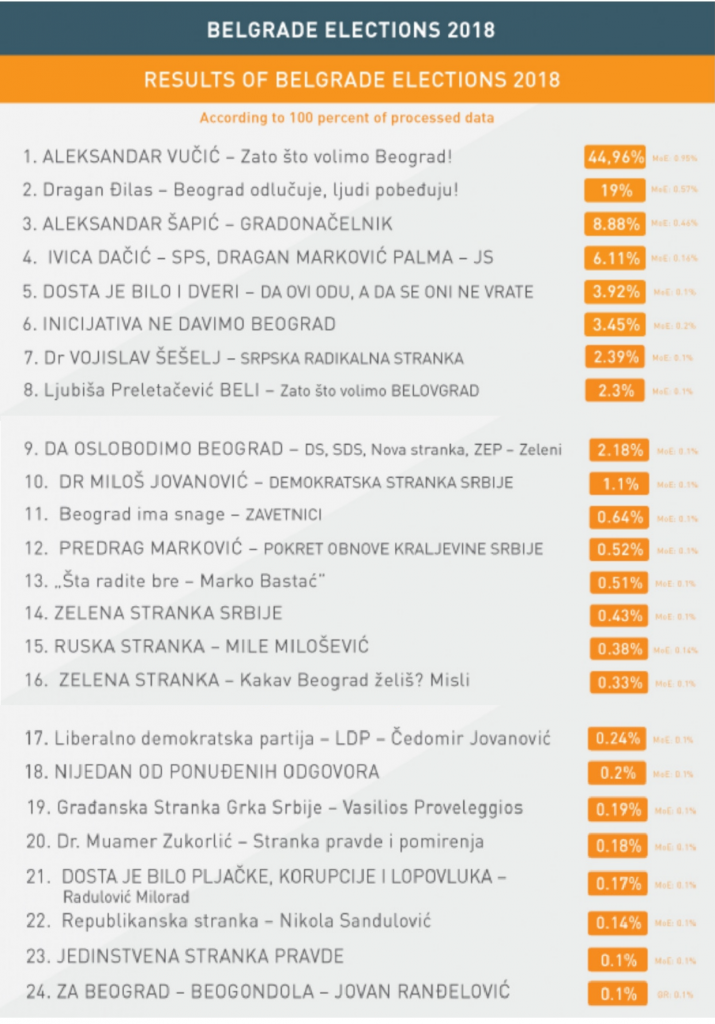
Belgrade elections 2018 – Final report
Ordinary Belgrade elections were held in Serbia on March 4th 2018. CRTA observation mission monitored overall process of elections. This report presents detail findings and provide recommendations for improvement of the quality of electoral process.
Belgrade Elections 2018 – Preliminary Statement on the election Day
The quality of election process on the Election Day was not in line with international standards for free and fair elections. Serious breaches of electoral procedures were recorded at eight percent of polling stations. In comparison with 2017 presidential and 2016 parliamentary elections, the percentage of recorded irregularities at polling stations is higher.
Results: List „Aleksandar Vucic – Zato sto volimo Beograd“ won 44,9 percent of votes, Dragan Đilas – 19 percent of votes
According to 81 percent of processed data within the CRTA’s election observation sample, the list „Aleksandar Vucic – Zato sto volimo Beograd“ won 44,9 percent of votes. With 19 percent of votes the list lead by Dragan Djilas came second, followed by the list of Aleksandar Sapic with 8,8 percent and coalition SPS-Jedinstvena Srbija with six percent of votes. All remaining electoral contestants did not pass the threshold.
Read MoreElection Day Not in Accordance with Democratic Standards for Free and Fair Elections
The quality of election process on the Election Day was not in line with international standards for free and fair elections. Serious breaches of electoral procedures were recorded at eight percent of polling stations, while occurances such as evidencing voters in parallel lists and bringing groups of voters to polling stations to cast a vote were recorded in front of seven percent of polling stations, the CRTA election observation mission stated. In comparison with 2017 presidential and 2016 parliamentary elections, the percentage of recorded irregularities at polling stations is higher.
Read MoreOpening of polling stations mainly in accordance with established procedures
The opening of polling stations for the Belgrade City Council elections went mainly in accordance with established procedures, the CRTA election observation mission stated. A total of 1.606.931 citizens has the right to vote in Belgrade elections.
Read More2017
PRESIDENTAL ELECTIONS
The Elections for the President of the Republic were held on April 2, 2017, across Serbia
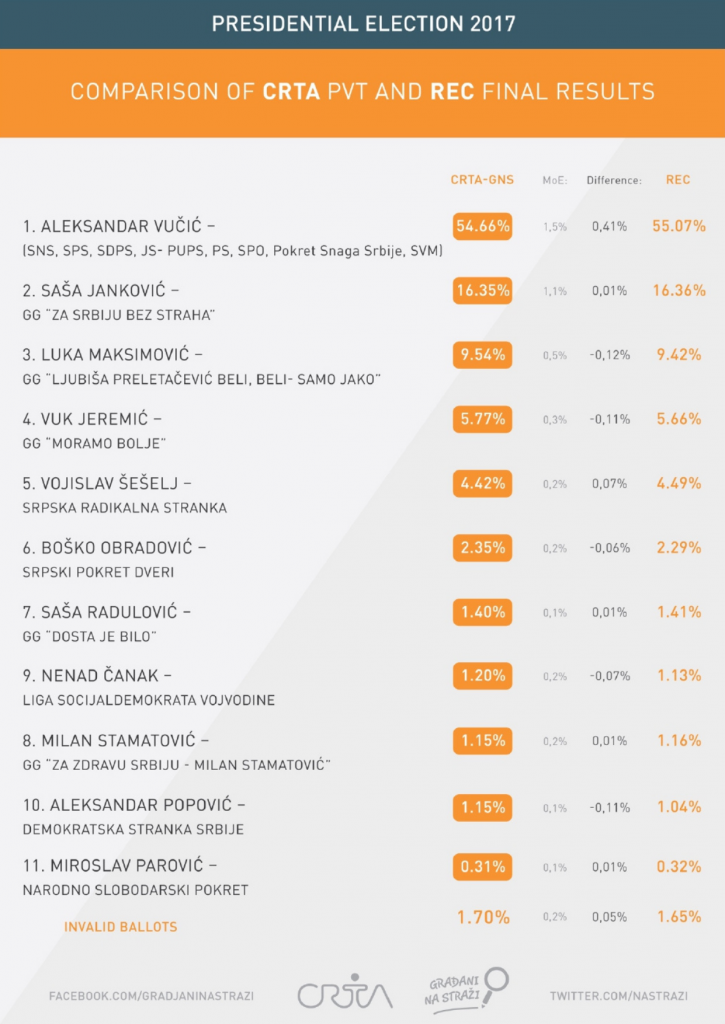
Final report – Presidential elections 2017
Serbia held regular presidential elections on April 2nd 2017. The CRTA observation mission “Citizens on Watch”, monitored the entire electoral process (pre-election period, Election Day and post-election period) on the territory of Serbia, as a local independent non-partisan observer. Please find full report regarding presidential elections 2017.
Amid political tensions, CRTA’s PVT confirms preliminary results
Taken from: www.gndem.org Serbians turned out to vote on April 2, 2017 to elect their next president. With elections called only a month before the date, the political stakes were high between then Prime Minister Aleksandar Vucic and a number of opposition candidates. The election was seen by many as a referendum on the policies and actions of Vucic, whose Serbian Progressive Party (SNS) represents the largest party in the ruling coalition in parliament after retaining their majority in the 2016 parliamentary elections. With a limited amount of time for candidates to campaign and amid a partisan political environment, Serbian citizen…
Read MoreCRTA files the Request for access to polling board records
According to the analysis of information on the quality of electoral processes received from the representative and random sample of 450 polling stations, and the review of polling board records compiled after closing of polling stations, the CRTA election observation mission „Citizens on Watch“ assessed that the Election Day went mainly in accordance with established procedures, and that the information about voters’ turnout and voting results for individual election candidates corresponded to the official results of the Republic Electoral Commission (on the basis of 99,9 percent of processed material). The CRTA election observation mission „Citizens on Watch“ stands behind its preliminary election monitoring findings regarding the quality of the elections conduct prior to and during the Election Day.
Read MorePolling stations are open-Presidential elections 2017
Opening of the polling stations for the presidential elections in Serbia went mainly in accordance with the valid procedures, CRTA election observation mission ‘Citizens on Watch’ stated. All observers were granted the access to the polling stations.
Read More2016
PARLIAMENTARY ELECTIONS
The Elections for Members of Parliament were held on April 24, 2016, along with provincial and local elections
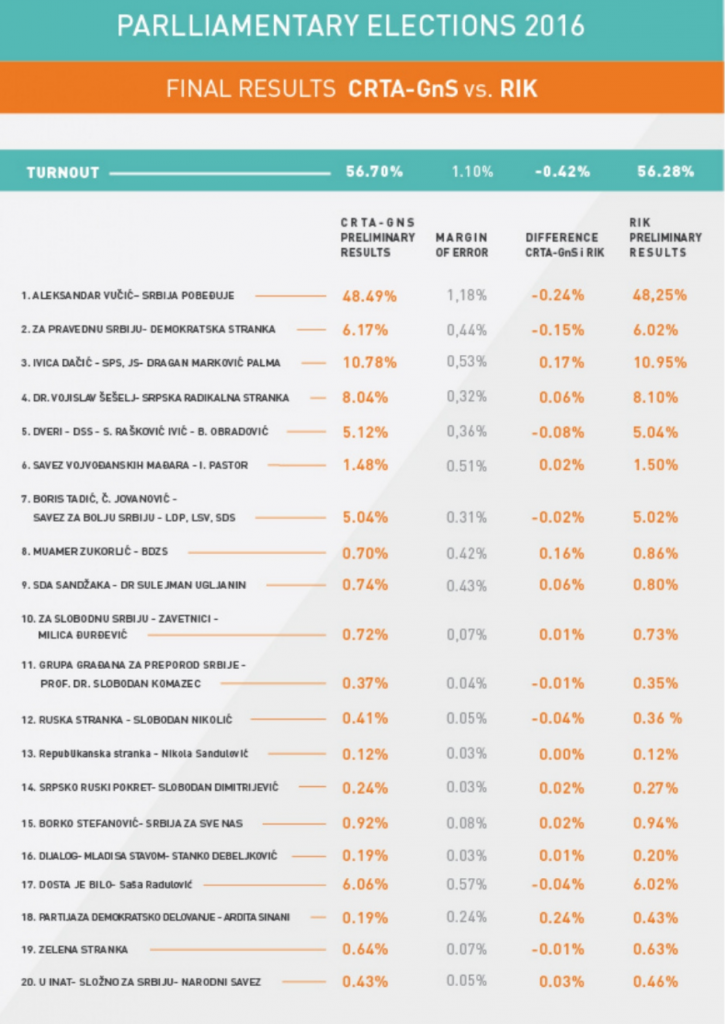
Parliamentary elections 2016. – Final report
Early Parliamentary elections were held in Serbia on March 28th 2016. CRTA observation mission monitored overall process of elections. This report presents detail findings and provide recommendations for improvement of the quality of electoral process.
Parliamentary Elections 2016 – Preliminary report on the election day observation
This is a report from the election day on the 28. of the april 2016.
Parliamentary Elections 2016 – Second interim report for the period from april 4 to april 18
From April 4 to 18, was marked with counterfeit signatures of eligible voters, conflicting positions of the Republic Election Commission (RIK) and the Administrative Court on the rights of parties to obtain the status of an ethnic party, as well as report.
Parliamentary Elections 2016: Long term monitoring First interim report
CRTA, within election observation mission “Citizens on Watch”, is monitoring the entire electoral process, covering the pre-election period, election day and postelection period. The first interim report covers the period from March 24 to April 3, 2016.




